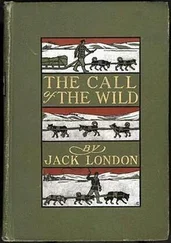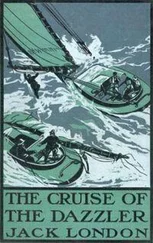Jack London - The Road
Здесь есть возможность читать онлайн «Jack London - The Road» весь текст электронной книги совершенно бесплатно (целиком полную версию без сокращений). В некоторых случаях можно слушать аудио, скачать через торрент в формате fb2 и присутствует краткое содержание. Год выпуска: 1907, Жанр: Классическая проза, на английском языке. Описание произведения, (предисловие) а так же отзывы посетителей доступны на портале библиотеки ЛибКат.
- Название:The Road
- Автор:
- Жанр:
- Год:1907
- ISBN:нет данных
- Рейтинг книги:5 / 5. Голосов: 1
-
Избранное:Добавить в избранное
- Отзывы:
-
Ваша оценка:
- 100
- 1
- 2
- 3
- 4
- 5
The Road: краткое содержание, описание и аннотация
Предлагаем к чтению аннотацию, описание, краткое содержание или предисловие (зависит от того, что написал сам автор книги «The Road»). Если вы не нашли необходимую информацию о книге — напишите в комментариях, мы постараемся отыскать её.
The Road — читать онлайн бесплатно полную книгу (весь текст) целиком
Ниже представлен текст книги, разбитый по страницам. Система сохранения места последней прочитанной страницы, позволяет с удобством читать онлайн бесплатно книгу «The Road», без необходимости каждый раз заново искать на чём Вы остановились. Поставьте закладку, и сможете в любой момент перейти на страницу, на которой закончили чтение.
Интервал:
Закладка:
"Gay-cats" also come to grief at the hands of the road-kid. In more familiar parlance, gay-cats are short-horns, chechaquos , new chums, or tenderfeet. A gay-cat is a newcomer on The Road who is man-grown, or, at least, youth-grown. A boy on The Road, on the other hand, no matter how green he is, is never a gay-cat; he is a road-kid or a "punk," and if he travels with a "profesh," he is known possessively as a "prushun." I was never a prushun, for I did not take kindly to possession. I was first a road-kid and then a profesh. Because I started in young, I practically skipped my gay-cat apprenticeship. For a short period, during the time I was exchanging my 'Frisco Kid monica for that of Sailor Jack, I labored under the suspicion of being a gay-cat. But closer acquaintance on the part of those that suspected me quickly disabused their minds, and in a short time I acquired the unmistakable airs and ear-marks of the blowed-in-the-glass profesh. And be it known, here and now, that the profesh are the aristocracy of The Road. They are the lords and masters, the aggressive men, the primordial noblemen, the blond beasts so beloved of Nietzsche.
When I came back over the hill from Nevada, I found that some river pirate had stolen Dinny McCrea's boat. (A funny thing at this day is that I cannot remember what became of the skiff in which Nickey the Greek and I sailed from Oakland to Port Costa. I know that the constable didn't get it, and I know that it didn't go with us up the Sacramento River, and that is all I do know.) With the loss of Dinny McCrea's boat, I was pledged to The Road; and when I grew tired of Sacramento, I said good-by to the push (which, in its friendly way, tried to ditch me from a freight as I left town) and started on a passear down the valley of the San Joaquin. The Road had gripped me and would not let me go; and later, when I had voyaged to sea and done one thing and another, I returned to The Road to make longer flights, to be a "comet" and a profesh, and to plump into the bath of sociology that wet me to the skin.
Two Thousand Stiffs
A "stiff" is a tramp. It was once my fortune to travel a few weeks with a "push" that numbered two thousand. This was known as "Kelly's Army." Across the wild and woolly West, clear from California, General Kelly and his heroes had captured trains; but they fell down when they crossed the Missouri and went up against the effete East. The East hadn't the slightest intention of giving free transportation to two thousand hoboes. Kelly's Army lay helplessly for some time at Council Bluffs. The day I joined it, made desperate by delay, it marched out to capture a train.
It was quite an imposing sight. General Kelly sat a magnificent black charger, and with waving banners, to the martial music of fife and drum corps, company by company, in two divisions, his two thousand stiffs countermarched before him and hit the wagon-road to the little burg of Weston, seven miles away. Being the latest recruit, I was in the last company, of the last regiment, of the Second Division, and, furthermore, in the last rank of the rear-guard. The army went into camp at Weston beside the railroad track-beside the tracks, rather, for two roads went through: the Chicago, Milwaukee, and St. Paul, and the Rock Island.
Our intention was to take the first train out, but the railroad officials "coppered" our play-and won. There was no first train. They tied up the two lines and stopped running trains. In the meantime, while we lay by the dead tracks, the good people of Omaha and Council Bluffs were bestirring themselves. Preparations were making to form a mob, capture a train in Council Bluffs, run it down to us, and make us a present of it. The railroad officials coppered that play, too. They didn't wait for the mob. Early in the morning of the second day, an engine, with a single private car attached, arrived at the station and side-tracked. At this sign that life had renewed in the dead roads, the whole army lined up beside the track.
But never did life renew so monstrously on a dead railroad as it did on those two roads. From the west came the whistle of a locomotive. It was coming in our direction, bound east. We were bound east. A stir of preparation ran down our ranks. The whistle tooted fast and furiously, and the train thundered at top speed. The hobo didn't live that could have boarded it. Another locomotive whistled, and another train came through at top speed, and another, and another, train after train, train after train, till toward the last the trains were composed of passenger coaches, box-cars, flat-cars, dead engines, cabooses, mail-cars, wrecking appliances, and all the riff-raff of worn-out and abandoned rolling-stock that collects in the yards of great railways. When the yards at Council Bluffs had been completely cleaned, the private car and engine went east, and the tracks died for keeps.
That day went by, and the next, and nothing moved, and in the meantime, pelted by sleet, and rain, and hail, the two thousand hoboes lay beside the track. But that night the good people of Council Bluffs went the railroad officials one better. A mob formed in Council Bluffs, crossed the river to Omaha, and there joined with another mob in a raid on the Union Pacific yards. First they captured an engine, next they knocked a train together, and then the united mobs piled aboard, crossed the Missouri, and ran down the Rock Island right of way to turn the train over to us. The railway officials tried to copper this play, but fell down, to the mortal terror of the section boss and one member of the section gang at Weston. This pair, under secret telegraphic orders, tried to wreck our train-load of sympathizers by tearing up the track. It happened that we were suspicious and had our patrols out. Caught red-handed at train-wrecking, and surrounded by twenty hundred infuriated hoboes, that section-gang boss and assistant prepared to meet death. I don't remember what saved them, unless it was the arrival of the train.
It was our turn to fall down, and we did, hard. In their haste, the two mobs had neglected to make up a sufficiently long train. There wasn't room for two thousand hoboes to ride. So the mobs and the hoboes had a talkfest, fraternized, sang songs, and parted, the mobs going back on their captured train to Omaha, the hoboes pulling out next morning on a hundred-and-forty-mile march to Des Moines. It was not until Kelly's Army crossed the Missouri that it began to walk, and after that it never rode again. It cost the railroads slathers of money, but they were acting on principle, and they won.
Underwood, Leola, Menden, Avoca, Walnut, Marno, Atlantic, Wyoto, Anita, Adair, Adam, Casey, Stuart, Dexter, Carlham, De Soto, Van Meter, Booneville, Commerce, Valley Junction-how the names of the towns come back to me as I con the map and trace our route through the fat Iowa country! And the hospitable Iowa farmer-folk! They turned out with their wagons and carried our baggage; gave us hot lunches at noon by the wayside; mayors of comfortable little towns made speeches of welcome and hastened us on our way; deputations of little girls and maidens came out to meet us, and the good citizens turned out by hundreds, locked arms, and marched with us down their main streets. It was circus day when we came to town, and every day was circus day, for there were many towns.
In the evenings our camps were invaded by whole populations. Every company had its campfire, and around each fire something was doing. The cooks in my company, Company L, were song-and-dance artists and contributed most of our entertainment. In another part of the encampment the glee club would be singing-one of its star voices was the "Dentist," drawn from Company L, and we were mighty proud of him. Also, he pulled teeth for the whole army, and, since the extractions usually occurred at meal-time, our digestions were stimulated by variety of incident. The Dentist had no an?sthetics, but two or three of us were always on tap to volunteer to hold down the patient. In addition to the stunts of the companies and the glee club, church services were usually held, local preachers officiating, and always there was a great making of political speeches. All these things ran neck and neck; it was a full-blown Midway. A lot of talent can be dug out of two thousand hoboes. I remember we had a picked baseball nine, and on Sundays we made a practice of putting it all over the local nines. Sometimes we did it twice on Sundays.
Читать дальшеИнтервал:
Закладка:
Похожие книги на «The Road»
Представляем Вашему вниманию похожие книги на «The Road» списком для выбора. Мы отобрали схожую по названию и смыслу литературу в надежде предоставить читателям больше вариантов отыскать новые, интересные, ещё непрочитанные произведения.
Обсуждение, отзывы о книге «The Road» и просто собственные мнения читателей. Оставьте ваши комментарии, напишите, что Вы думаете о произведении, его смысле или главных героях. Укажите что конкретно понравилось, а что нет, и почему Вы так считаете.





